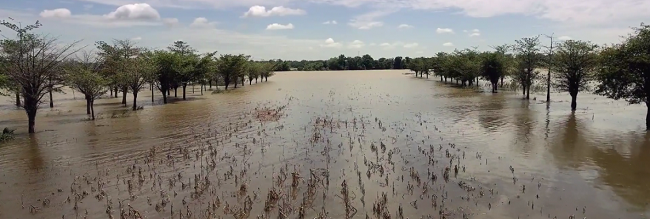The Rice Farmers Association of Nigeria (RIFAN) has appealed to the Federal Government to grant farmers affected by recent flooding fresh loans to enable them to engage in dry season farming.

The National President of RIFAN, Alhaji Aminu Goroyo, told newsmen in Abuja on Monday, December 10, 2018 that this would also enable the farmers to service their loans.
Goroyo, who decried the plight of its members following the last massive flooding in the country, said that the huge losses resulting from the incident had compounded the difficulty of rice farmers in meeting their loan obligations to lenders.
According to him, no fewer than 360,000 farmers that got loans from the Central Bank of Nigeria through its Anchor Borrowers’ Programme are affected.
“Most of the affected farmers no longer have the capacity for loan repayment, having lost most of their crops to floods,” he said.
Goroyo thanked President Muhammadu Buhari; the Minister of Agriculture and Rural Development, Chief Audu Ogbeh; and the CBN governor, Mr Godwin Emefiele, who worked hardto ensure the success of the Anchor Borrowers’ Programme.
RIFAN’s appeal came days after Buhari assured that farmers affected by the massive rains this year would be compensated.
Buhari gave the assurance at an event to mark the Farmers Day 2018 in Yenagoa, Bayelsa State on Dec. 1, his Special Adviser on Media and Publicity, Mr Femi Adesina, said in a statement.
“I want to assure all flood-affected farmers and fishermen that you will be helped. This government is with you in your time of need.
“As I speak to you now, the modalities for this compensation programme are being finalised and very soon, we shall start implementation,” Adesina quoted him as saying.
In October 2018, Ogbeh also warned that the country might experience rice shortage as a result of the flooding in the states producing rice.
Speaking at a seed exhibition in Abuja, he stated that major rice producing states, including Jigawa, Kebbi, Anambra and Kogi, were badly affected.
The minister had said that government and other stakeholders must find a way to assist the victims to avert the looming scarcity of the staple.
By Philomina Attah
